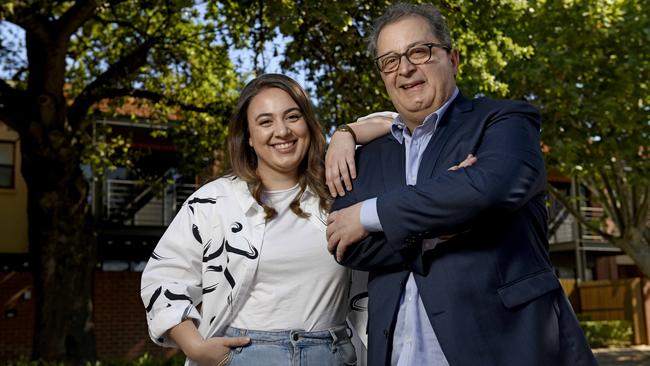Superannuation’s $150k Christmas gift for teenage children
When a child lands their first part-time job, parents who employ this saving strategy can deliver them huge sums of future wealth.
SmartDaily
Don't miss out on the headlines from SmartDaily. Followed categories will be added to My News.
Your children may not thank you now, but will be extremely grateful later in life if this year’s Christmas gift becomes more than $150,000.
Parents of working teens are being urged to make the most of Australia’s superannuation incentives and compound interest to give their children a powerful kickstart to building wealth.
Big benefits can flow from the government co-contribution scheme, which pays up to $500 a year into a low-income earner’s super fund if they contribute up $1000 of their own money – less than $20 a week.
A parent who gifts this money to their child’s super can produce an effective 50 per cent financial return on that money, and that’s before compound interest goes to work on it.
Compound interest calculators show for a 16-year-old with a part-time job whose parents pay $1000 into their super annually until they are 21, those $5000 of contributions grows to $10,730, based on 7 per cent annual returns.
Then, even if parents make no more contributions after that, the $10,730 grows to $38,800 by age 40 and a whopping $150,164 by 60 – the current age Australians can withdraw their super.
Financial strategist Theo Marinis says there is no minimum age to start the strategy, although the child must earn some employment income.
VALUABLE LESSON
“It’s definitely worth doing – it’s amazing how quickly it compounds and it sets them up and teaches them,” he says.
“The heavy lifting is done early and they won’t have to do as much later.
“The person receiving the co-contribution has to have worked and they have to have lodged a tax return. That’s how they marry it up – through your Tax File Number.”
Marinis started this strategy with his daughter Sofia when she began part-time work at a supermarket at 14.
“Sofia is now 27 years old and has a super balance approximately 2.7 times the recommended super balance for a 30-year-old,” he says.

Sofia Marinis says super contributions are “all I’ve known” since she started work in her mid teens.
“I feel a sense of security knowing that my superannuation is compounding nicely in the background,” she says.
“Superannuation is not something to sleep on – the sooner you start, the better off you’ll be.
“I personally check my super every six months just to have an awareness of how things are progressing.”
Last financial year almost 400,000 Australians received some form of super contribution, which pays the full $500 to people earning below $41,112 this year, and phases out completely when income hits $56,112.
KNOW THE RULES
NGS Super CEO Laura Wright says to qualify for the benefit you must be under age 71 and earn at least 10 per cent of your total income from employment or carrying on a business.
“Young workers can visit their super fund’s website to find out more on how to make a personal contribution to their fund,” she says.
“There’s no need to apply for the government co-contribution – when you lodge your tax return, the ATO will work out if you’re eligible.”
Wright says parents who pay a lump sum into their kids’ super at Christmas can provide an “incredible growth opportunity over 50-plus years”.
“To give you an idea on how much this could grow over time, you can use an online calculator on moneysmart.gov.au.” she says.
“It’s really hard for kids to get excited about money they’re not going to see until they retire. But superannuation has the power and benefit of compound interest, so any additional contributions will help fast-track your teenager’s super balance growth and ultimately improve their quality of life in retirement.”
HOW IT WORKS
Putting $1000 of after-tax money each year into a working child’s super may attract a $500 co-contribution even if they receive no contributions from their employer. Do this for five years from age 16 and, based on a typical 7 per cent annual return, those contributions can compound to:
• $4822 at age 18
• $10,730 at age 21
• $19,727 at age 30
• $38,805 at age 40
• $76,363 at age 50
• $150,164 at age 60
• $241,131 at age 67 (current retirement age)
Source: Moneysmart.gov.au compound interest calculator
Originally published as Superannuation’s $150k Christmas gift for teenage children





